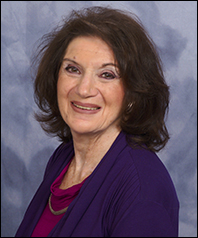Guest Article By: Beverly Nadler CH CMT
Kabbalah is an ancient mystical Hebrew teaching that explains the spiritual, mental and physical laws that govern the universe, and much more. I was amazed to discover the similarities between the latest theories of physics and quantum physics and Kabbalistic teachings that were revealed thousands of years ago.
The recent tremendous surge of interest in Kabbalah can be attributed to Rav Philip Berg, his wife, Karen and their sons, Yehuda and Michael, both rabbis. The family oversees the operation of 50 or more Centres worldwide – the largest of which are in NYC, Los Angeles, London and Toronto.
Though the Kabbalah Center is not the only source for studying Kabbalah, it is the one the media writes about, the one the rich and famous go to, and the place where non-Jews, as well as Jews, are welcome to study the wisdom of Kabbalah.
It is not my intention to “teach” you Kabbalah. That is best left to Kabbalists and trained Kabbalah teachers. My intention is to tell you “about” Kabbalah in order to remove some of the misconceptions about this amazing teaching that has guided and inspired some of the most brilliant and revered people throughout history. Want to know who they are? Good, let me satisfy your curiosity before we move on.
Great Minds Who Studied Kabbalah
Among the great scientists, artists, philosophers, spiritual leaders and mathematicians who are known to have studied Kabbalah — either through the original system (word of mouth) or by studying Kabbalah’s sacred text, the Zohar — were Pythagoras, mathematician and philosopher of ancient Greece, Meister Eckehart, 13th century German mystic and philosopher; Sir Isaac Newton, 17th century English mathematician and physicist (Newton’s copy of the Zohar is in Cambridge University in England.
William Blake, 18th century British poet, artist and mystic; Sigmund Freud, the German Physicist Wolfgang Pauli (1900–1958), who won the Nobel prize in physics in 1945. While there are no records revealing that Einstein studied Kabbalah or read the Zohar, there are striking similarities to Kabbalah and some of his profound mathematical and physics theories and discoveries. It is also widely believed that Kabbalah strongly influenced Plato, psychiatrist Dr. Carl Jung, Shakespeare and Leonardo Da Vinci, because their bodies of work contain so many Kabbalistic principles. And serious students of biblical history tell us that Abraham, Moses and Jesus were all Kabbalists. So if you have more than a passing interest in Kabbalah, you’re in good company!
Controversy and Kabbalah
Of course, like everything “new” (even though Kabbalah is very old) it arouses suspicion and becomes the butt of jokes, especially when such “zealous spiritual masters” like Paris Hilton and Britney Spears are said to be Kabbalah students.
I don’t know of any spiritual philosophy or religion with many followers – some of whom are celebrities who donate large sums of money to their spiritual or religious organization — that doesn’t have vehement supporters and a smaller, but just as vehement, group of critics (think Scientology, think the Catholic Church).
About the Kabbalah Centre
Most of my familiarity with Kabbalah comes from my association with the Berg family at their original American Kabbalah Centre in Queens, New York in the late 1980’s and early 90s. The Kabbalah Centre traces its beginnings to a Yeshiva (Jewish school) founded by Rabbi Yehuda Aslag in 1922 in Jerusalem. His nephew, Rabbi Avraham Brandwein, taught Kabbalah to Philip Berg, an American ordained rabbi, who was so fascinated with the mystical spiritual teaching, that he and his wife decided to bring Kabbalah — once only studied by male Orthodox Jews over age 40 who had first completed all required religious Jewish studies — to the “masses”, both Jews and non-Jews.
This decision was considered outrageous and created a great deal of unrest in the orthodox and conservative Jewish communities, and to say the least, did not make the Bergs popular with “traditional” (if we can call an ancient mystical teaching “traditional”) Kabbalists and Kabbalah teachers.
Because of their dedication to make the philosophy, wisdom and spiritual teachings of Kabbalah accessible to everyone who is interested in improving their life (and willing to do the work involved in spiritual evolution), more and more people are finding that Kabbalah – with its emphasis on sharing, compassion, unconditional love, taming the ego, gratitude, restricting negativity, mastering your mind and emotions – is worthy of their study.
Celebrities and the Kabbala Center
Celebrities are using their influence, as well as their money, to bring Kabbalah to the public. The most famous celebrity is, of course, Madonna, who is said to have contributed $18,000,000. She and Roseanne Barr were both introduced by Sandra Bernhardt, who discovered the KabbalahCentre in Los Angeles, in 1995.
To those who think Kabbalah is just a passing phase for Madonna, think again. She has been studying since 1996. Madonna credits Kabbalah with transforming her life — both inner (her beliefs, thoughts and feelings) and outer (her behaviors, how she lives and performs and what she manifests).
Madonna’s concerts have changed, and she now writes best selling children’s books, in order to help youngsters understand the importance of spiritual values of love, non-judgment, generosity and kindness, etc. She donates all profits from her books (her first, “The English Roses”, became an international best seller in 2003) to Spirituality for Kids Foundation, an education and outreach arm of the Kabbalah Centre. Madonna has influenced many other celebrities to become involved with Kabbalah, including Demi Moore and Ashton Kutcher.
Check out the books below by Beverly Nadler !







